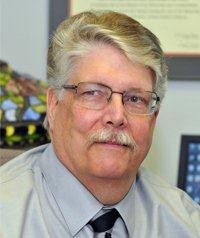
Earlier this month the Insight Kansas writers got together for the Mid-America American Studies Association 2016 Conference. Our presentation was “Sam Brownback’s Kansas: Politics and Policies, 2010-2016.” The Topeka Capital-Journal put an unexpected coda on our presentation in its next Sunday editorial, “Brownback plan failing.” The paper has been a consistent supporter of the governor throughout his public career.
The evidence grows that the governor has become more than just a lame duck running out the clock on his last three years. He may be about to become what politicians love best in all the world – a scapegoat. After all, what the paper called a “plan” was identified by the man himself as an “experiment.” While still early in the state’s 2016 election season the voices of once-faithful allies rise even now, before the end of this legislative session, complaining, objecting, proposing legislative corrections to the experiment, and possibly veto overrides.
Never a fan of this governor’s particular mix of theocratic conservatism and love of supply-side economics, it might be expected that this writer has an elevated happy factor. But, that is not the case. To be sure, the dogma that eliminating taxes on proprietors’ incomes was going to stimulate a tremendous upsurge in new jobs was bad economics when proposed – just as daft as it was when first tried in the 1980s. Further, there’s no doubt that taking a larger bite of poor, lower-middle and middle class incomes with increased consumption taxes would reduce consumer spending and create disaffection and discontent. The dismal performance of sales tax receipts and the fact that in general the citizens of Kansas think less of the governor than they do of the despised Obama provides proof. Finally, for those of differing philosophical viewpoints, the governor’s obsession with advancing and espousing aggressively conservative social values has had a markedly chilling effect, especially if one prizes the value of separation between church and state.
Why not then rejoice at the governor’s excellent impersonation of the biblical Job? At the base of the governor’s severe political conservatism, there is a very real set of concerns that all Kansans should be thinking about and acting upon. Kansas is not what it used to be. Our farms no longer account for the incomes of 40 percent of our fellow citizens. The aviation industry, so critical 60 years ago, is a shadow of its past. The bonanza of oil and gas has gone and is unlikely to return to its peak. It’s a litany of grim realities that has long been building.
Census Bureau data retrieved for the roundtable showed that in the 2000 Census, Kansans aged 15 to 19 years old numbered 210,118. In 2010 that same cohort, now 25 to 29 years of age, stood at 197,783 – a decline of 5.9%. Similarly, the group that was 20 to 24 years old in 2000 numbered 190,167. By 2010 the count of these Kansans, now 30 to 34 years old, amounted to 179,937 – a decline of 5.4%. That’s 23,000 workers, potential parents, neighbors and future leaders that simply left! Wichita State’s Center for Economic Development and Business Research presented projections in February showing that Kansas’s current 15 to 24 year old bracket will shrink 37,000 (9%) by 2024. The departed are not likely to return, but the state can do better with its future.
Kansas must change. It must become more progressive, more accepting of evolving cultures, more willing to accommodate humanity in all its diversity, and it must use the tools of both government and the marketplace. If these things do not occur, the 2020 census is likely to convey similar grim news for Nana and Gramps, who keep asking themselves why the kids have to live so darn far away.
